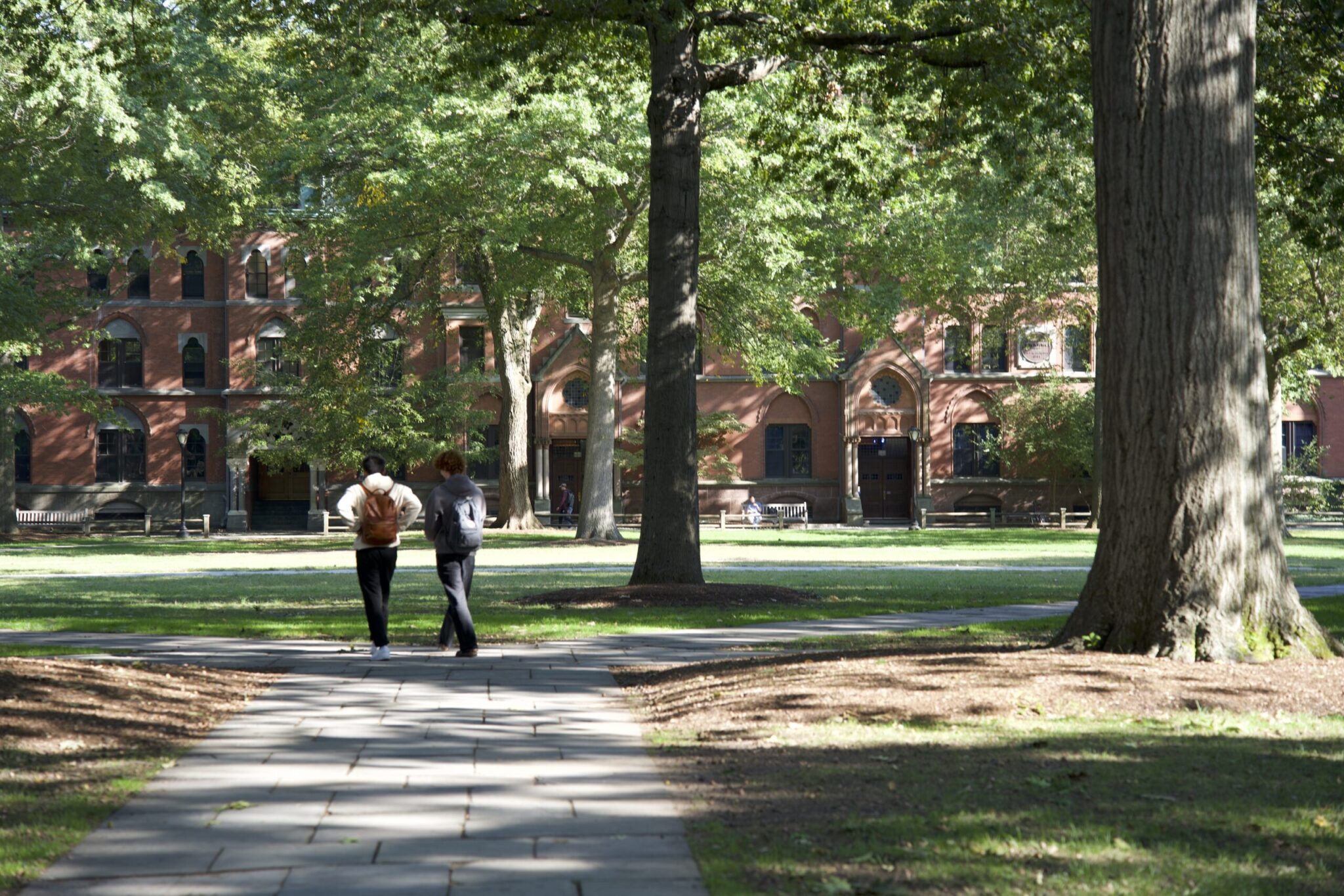YCC proposes new certificates in ASL, Directed Studies, Economics
The Yale College Council is spearheading a proposal for three new certificates at Yale College, though faculty expressed uncertainty about the plausibility of the proposal.

Ellie Park, Photography Editor
Yalies may soon have three new certificates options to add to their resumes.
The Yale College Council is proposing the addition of three new certificates for Yale students: American Sign Language, Directed Studies and Economics.
“Lots of students are interested in the academic areas that the certificates cover, but are not prepared to dedicate the entirety of their major to them,” Kyle Thomas Ramos ’26, the YCC’s academic policy director, wrote to the News. “All students should feel encouraged to explore a variety of academic interests.”
Thomas Ramos explained that the idea stemmed from conversations between YCC senators and their residential college communities.
Currently, of the three proposals, the ASL certificate is the only one that has been approved by the YCC senate. The Directed Studies certificate is “in progress,” while the Economics certificate is “awaiting senate approval.”
Yale College offers three types of certificates, described as “opportunities for students to deepen a skill or to bring disparate elements into focus”: advanced language certificates, interdisciplinary certificates and skills-based certificates. There are 33 total certificates across these focuses.
Dean of Yale College Pericles Lewis told the News that Yale’s focus on certificates is a result of the College already having more majors compared to peer institutions. Yale offers 82 majors.
“Most of the newer programs tend to be certificates, which [are] smaller than the major and easier to manage,” he said. Lewis noted that certificates are easier to administer because they do not “require as many staff to run our many faculty.”
He also noted that certificates allow students to direct their work more narrowly toward a single interest.
Proposed requirements for the ASL certificate include completion of four courses beyond the L4 level. The economics certificate would consist of five to six course credits “deemed fundamental to the study by the directors of the Yale economics department,” per the YCC’s proposal. There is currently no proposal on the YCC’s policy tracker for the Directed Studies certificate.
“The requirements for these certificates have not been made explicit yet, particularly because it is the role of administration, not the YCC, to create curriculum,” Ramos wrote to the News. “We will work closely with administration, however, to ensure that the requirements for these certificates mirror those that are already in place for other certificates (ex. 5-6 courses).”
However, some faculty members have demonstrated reservations about the creation of these new certificates.
Professor Katja Lindskog, the director of the Directed Studies program, told the News that it would be hard to assess the benefits of a DS certificate without knowing the details of what that certificate would look like.
“Since we already set the bar very high for our students in terms of assignments, I worry about adding anything more to their plate. However, if there is a way for students to be formally recognized for all their hard work in DS then that’s a conversation we’d be happy to have,” Lindskog noted, adding that the News’s inquiry was the first she had heard of the idea.
Courtnie Bui ’27 is currently enrolled in the Directed Studies program.
She expressed uncertainty over how a certificate program would work if the current program is only supposed to be a year long.
“I think that it would have to depend on what it [the DS certificate] would entail because DS is a first-year program, so I feel like a certificate would be unfeasible,” she said. “How would this certificate then differ from something in Classics?”
ASL Professor Julia Silvestri told the News that many people in the Deaf/ASL communities would “love to see an Advanced Language Certificate in ASL become a reality at Yale.” She noted that a formal certificate would “certainly boost interest in the subject” while serving as a “significant milestone in recognizing the proficiency and expertise of ASL.”
Although the YCC may pass these certificates within the next month, college administrators will ultimately determine whether adding them is possible.
Professor Steven Berry described the tradeoff the Economics Department should consider in making the decision, describing a balance between exposure and lack of depth.
“The advantage of the certificate is that it reduces the cost of exposing students to a little bit of economics,” Berry explained. “The disadvantage is that it reduces the benefit to learning more economics and the department has to think about that tradeoff when it makes its decision.”
Ramos also mentioned that the YCC academic policy team is working to form a “create-your-own” certificate program.
This program would hypothetically enable students to design their own personalized certificates, a first for the University.
“Students would be able to create a curriculum of 5-6 courses in a department or across departments, as well as suggest possible ideas for a capstone project” Ramos mentioned. “Once approved, the student could then complete their self-created program under the direction of a faculty member, and would then receive the certificate upon graduation from Yale College.”
Students interested in pursuing a certificate can submit a Declaration of Candidacy for a Certificate form, found on the University Registrar’s Office website.







